“This is already a war.”
For many in Lebanon, warnings from the United States that further escalation between Israel and Hezbollah could lead to all-out conflict have fallen flat. To Elias Faouz, it feels like that moment has already passed.
“It has been going on for a year now,” said Faouz, 44, an architect in Beirut, the capital city.
He recalled how during the 2006 war between Israel and Hezbollah, there was a sense of hope because several countries were actively mediating. This time, however, with the U.S. elections looming, it feels different.
“I think Israel’s government is playing into the timeline of the U.S. presidential elections, since they have about 40 days where they can do whatever they want before a new president comes in,” Faouz said.
“It’s not only going to impact people, it’s going to change their lives radically, like it’s happening in Gaza right now,” he added.
Faouz, whose family originally hails from the town of Maarakeh in the south, just welcomed friends — an extended family of seven — to stay in his apartment. Faouz said it took them 32 hours to drive from Maarakeh to Beirut, a trip that should normally take just over an hour. Their hometown was bombed after they left, he said.
Across Lebanon, which has a diverse religious population including Shiites, Sunnis, Christians and Druze, fear is gripping people who say they don’t want a repeat of the 2006 Israel-Hezbollah war — or worse, a situation like Gaza, where the death toll has surpassed 41,000, according to health officials there.
A barrage of Israeli strikes in Lebanon have already killed more than 600 since Monday, about half the number killed over the 34 days of fighting in 2006. Lebanon’s Health Ministry said at least 50 children and 94 women have been killed this week. The country’s foreign minister said Wednesday that the number of displaced was likely “approaching half a million.”
Israel’s military said the strikes have targeted the Iran-backed Hezbollah, particularly in the south and the densely populated neighborhoods in southern Beirut. Hezbollah has been trading fire with Israel since the day after Hamas fighters killed more than a thousand people and took around 250 hostages in the Oct. 7 attacks.
While both a political party with elected members in parliament and a Shiite Islamist group, the U.S., the United Kingdom and other nations consider Hezbollah to be a terrorist organization because of its militant activity and its backing from Tehran. It was formed in 1982, after Israel invaded Lebanon, with the initial aim of ending Israel’s occupation of southern Lebanon, which it achieved in 2000.
The group’s conflict with Israel has intensified over the past year. Hezbollah has fired rockets, missiles, and drones into northern Israel; and Israel has responded with increasingly heavy airstrikes. The tit-for-tat fighting has caused tens of thousands to be displaced on both sides of the border. Israel has vowed to do whatever it takes to safely return its citizens to their homes in the north.
Before Israel’s siege on Lebanon began this week, 23 Israeli soldiers and 26 civilians were killed amid low-level, cross-border fighting. More than 500 Lebanese people, including at least 100 civilians, had been killed in those strikes.
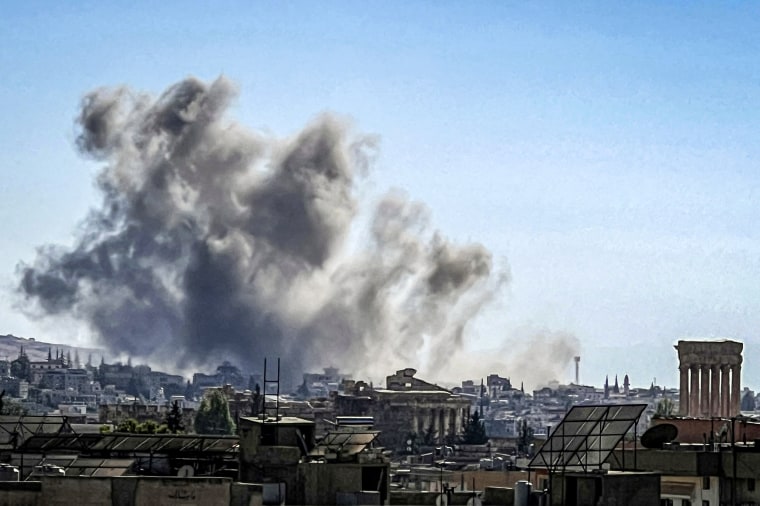
Sandra Moukhtar, an English teacher at a Catholic school in Mount Lebanon, a mostly Christian area, said she has “conflicted emotions.”
“It’s a feeling of rage and devastation about what’s happening. We didn’t ask for this,” said Moukhtar, who lives in the Beirut suburbs. “But at the same time, there’s a feeling of solidarity with our Lebanese fellow citizens” in the south.
The Israeli government has said that it doesn’t want war with Hezbollah and that it can be avoided if the Iran-backed group stops firing into Israel. Hezbollah has also said that it does not seek war but that it will continue striking Israel until there is a cease-fire in Gaza.
Moukhtar, a 50-year-old mother of two, said that people tried for months through anti-war campaigns to prevent what is unfolding.
“They are fighting their wars on our land. How many times should we pay the price of other people’s wars?” said Moukhtar. “We do feel for the Palestinian cause. But why does it have to play out on our soil? So far, we have over 500 killed and thousands who have left their homes. How is this helping the Palestinian cause?”
The ongoing strikes are wreaking havoc on a country that has repeatedly been the stage for armed conflict — from a 15-year civil war that began in 1975 and involved both Syria and Israel, to an intense 2006 war between Hezbollah and Israel, and the simmering border fights in between.
Causing further worry for Lebanese people are the potential effects of a full-scale war on an economy that has been in crisis since 2019. The amount of people living below the poverty line rose from 12% in 2012 to 44% in 2022, according to the World Bank. The country is also hosting an estimated 1.5 million Syrian refugees, the largest tally per capita in the world. And the government has been in political deadlock for months, with the parliament failing to elect a president 12 times.
With a stream of people fleeing from the south to Beirut and other areas, it has been a daunting task for many to find a place to stay. Some have sought refuge with family and friends or churches, while nearly 40,000 displaced people are staying in 283 shelters, according to the U.N.’s International Organization for Migration. Still, some have resorted to sleeping on the street, next to their cars.
For many in Lebanon, peace cannot come soon enough.
Sarah Waizani, 38, has family that fled the south after their town was bombed and traveled more than 14 hours by car to reach Beirut. They are now staying with extended family. Waizani’s parents moved in with her and her 13-year-old son in Beirut after their area, on the outskirts of Dahiye, was also bombed.
“We are in a war and we’re supposed to live a normal life, go to work, and it’s very difficult,” Waizani said.
“I want peace and love. I have nothing to do with politics or religion. I just want to live in peace.”

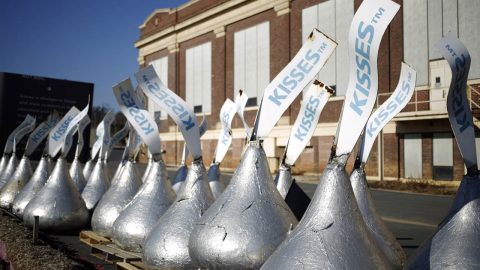
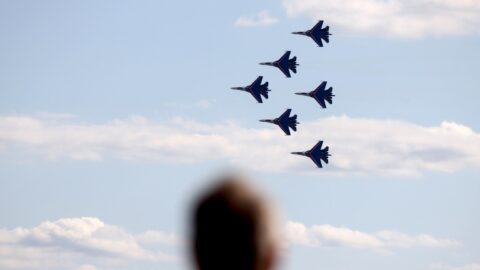
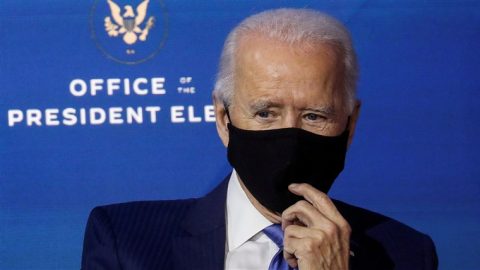
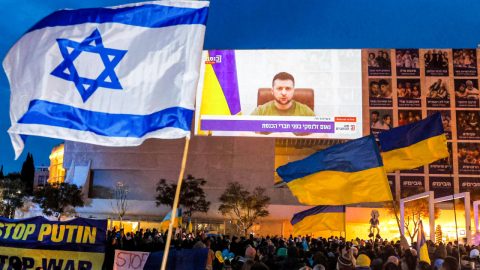


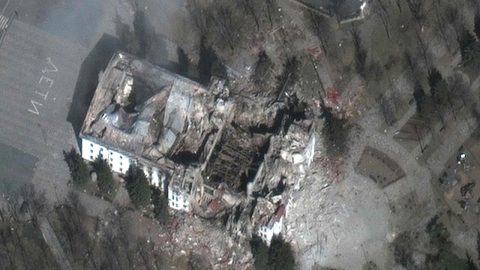
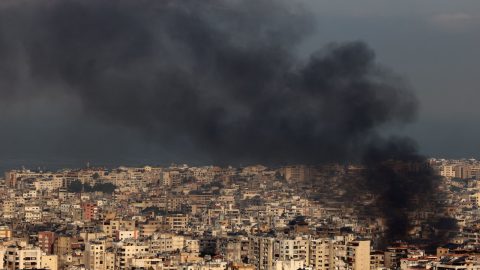
Recent Comments